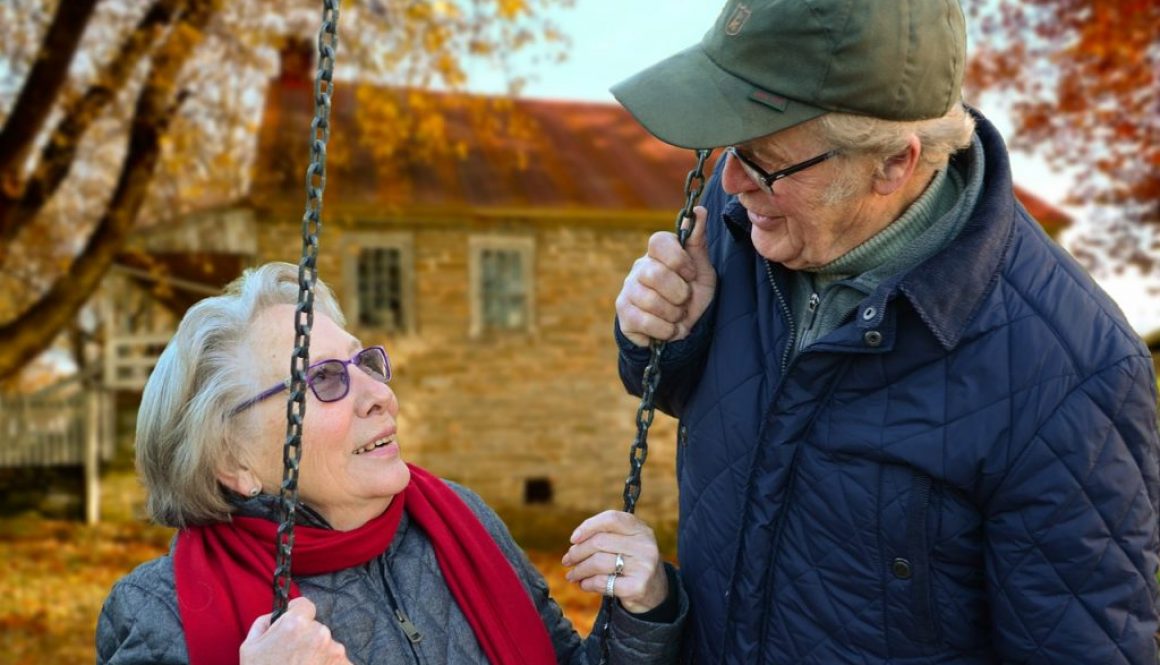Hospice Care: When is the Time Right?
It’s close to the end. You know it. Your family knows it. The doctor and medical staff know it. (“Close to the end” is a strange combination of perspective and reality. And “knowing it” is an exercise in faith and reality.) When is the time right for hospice care?
Most hospice agencies say families and care-partner teams often wait too long to make late-life and end-of-life decisions. Some even wait until the final weeks, or even days, to make the call for hospice care. In these cases, preventable pain and suffering have long since set in.
So when is the right time for hospice care? If you’re building a life-care plan — even if you and your loved one still expect many more healthy years — the answer is NOW.
Preparing for Hospice Care is Key to a Well-Made Life Care Plan
We know. The decision-making process is far from easy. But hospice care needs to be seen as a resource, not a devastating conclusion. Hospice care provides comfort care and coordinates other important support services for both the individual and their loved ones at end of life.
To be eligible, a doctor must affirm the individual’s condition will likely result in death within six months. The physical realities will be quite obvious. It’s time to mobilize hospice and all of its comfort, support and resources when an individual is experiencing one or more of the following:
- Increasing falls
- Severely declining cognition and memory (dressing, eating, walking, toileting, etc.)
- Increasing visits to urgent care, ER and hospital stays
- Deteriorating physical condition (skin tears, open sores, infections, etc.)
- Significant weight loss
A good plan factors these end-of-life realities and doesn’t delay action when they arise.
Increasing Falls
Numerous objects around a household could cause a trip and fall: electrical cords, dimly lit spaces, bunched-up rugs, grandchildren’s toys, damp floors, the list goes on. But what happens when misplaced objects and untidy rooms are no longer the greatest threat to navigating a home?
Weakness in muscle and bones as well as poor vision and balance associated with advancing age and illness are dangerous obstacles in themselves. Your loved one may get around the home for many years with limited assistance. But when they’re too weak and disoriented to move safely from the bed to a chair, it may be time to consider hospice care or another type of additional support.
Declining Cognition, Memory & Function
Again, this may occur on a sliding scale. Declining cognition and memory, often occurring with Alzheimer’s and other types of dementia, may seem relatively harmless at first. But there will come a time when your loved one won’t remember the reason for a trip to the kitchen or how to safely operate hazardous appliances and utensils once there. There will be a time when simply functioning — eating, toileting, bathing, etc. without help — is impossible.
When that day comes, hospice agencies can coordinate support to help families avoid and respond to emergencies and accidents.
Increasing Visits to the ER and Hospital
Trips to the emergency room and hospital stays for stabilizing or life-saving care may happen once or even several times. Chronic cardiopulmonary conditions, for instance, may bring an individual to the brink of death only to be revived with breathing treatments and sent home within hours. It’s when these trips become too frequent that families must consider bringing care directly to the individual.
Numerous hospital visits for emergency care are taxing on your loved one, who must not only endure poor health but also ambulance transport and the hectic rigors of lifesaving treatment — wondering which episode may be their last. They’re heart-wrenching to families who also suffer and anticipate grief alongside their loved one. Furthermore, they burden emergency transport and care systems who must respond to the same address time and again.
Hospice agencies will provide expert medical staff, medications, supplies and other resources for use at home. A hospice nurse, family and other loved ones may administer emergency care in comfort, without unnecessary transport or intervention.
Deteriorating Physical Condition
In most cases, end of life comes with pain, illness and general discomfort. Body systems gradually shut down — including the immune system and natural healing processes. Minor cuts and scrapes worsen to skin tears and open sores, often deep, painful and infected. These may be bed sores caused by the pressure of lying or sitting in one position.
When pain and suffering of this scale occurs because one is no longer capable of moving on their own, it’s likely time to involve hospice care. Hospice professionals will treat active wounds and ensure your loved one is moved frequently to avoid additional pressure sores.
Significant Weight Loss
Your loved one likely will lose appetite in the end, followed by what appears to be rapid and unhealthy weight loss. While poor appetite and weight loss could accompany a terminal illness like cancer or organ failure, it also could simply signal the natural shutdown of life processes.
Yes, it may be painful for you, as a loving and devoted care partner, to witness your loved one shutting down. But if your loved one no longer requires food to sustain bodily functions, well, they no longer need it. Hospice agencies administering end-of-life care recognize the importance of letting nature take its course — and will help you to make peace with that decision.
Plan for Hospice Care … Before Crisis Hits
OK, so pretty much everyone aims for their loved one to be home and independent as long as possible. That’s understandable. NO ONE wants to surrender control over their living situation to “the system.”
But hospice care isn’t a “system.” It’s a resource — covered by Medicare, Medicaid and major insurance plans — that can be planned many years in advance and delivered in home. It can be a valuable part of your community of support. The planning process considers many quality-of-life benefits including:
- Getting to know your loved one and the care-partner team
- Preparing care and resources for specific and anticipated needs (spiritual care, death doulas, living memorials and the like)
- Preparing legal documents and financial protections (establishing power of attorney, living wills, care orders and protecting assets)
Even if your loved one is not currently eligible for hospice, alternative palliative care options can deliver many of the same comfort services, treatments, medications and resources, with no out-of-pocket cost, outside of the six-month window.
The care-partner team must face end-of-life care with a clear head and without bias. Planning ahead can save headache, heartache and uncertainty. If you need help, Caregiver Support and Resources, LLC can help you to build a plan today and refer you to a great hospice agency tomorrow.



